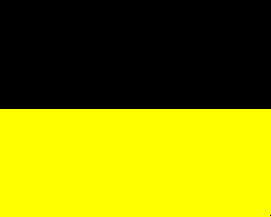


Stürgkh as Constitutional Dictator
Ever since March 1914, Austria’s government was a dictatorship based on Article 14 of the Constitution of 1867, which forced the closure of the Reichsrat. In this article, the Chancellor was allowed to rule by decree [vetoed only by the Kaiser] during times of emergency. The intransigence of the fractured parliament in making laws caused Stürgkh to petition for the continued adjournment of the Reichsrat. Once mobilisation was declared in the Empire on 25 July 1914, Graf Stürgkh passed a bewildering array of oppressive emergency decrees in the Austrian half. For the military, most were considered necessary for preparing the country for war. For the socialists and other leftist MPs, the dictatorship of Stürgkh had taken a dramatic backward leap. Immediately, there were widespread calls for the convocation of the Reichsrat according to constitutional law, but Stürgkh resolutely defied them, demanding that the focus of the government was exclusively toward the prosecution of the war. By this, Stürgkh virtually guaranteed certain hostility between the government and its people that was not to be found in any other country prosecuting the war.
Stürgkh as the Army's Servant
Stürgkh further granted an extension of the military’s war zone authority. During mobilisation, this covered only the frontiers with Russia and Serbia, but upon the prosecution of war, Stürgkh handed most civil authority over to the military in the entire Southwestern Theatre, including the whole coastline, as well as Austrian Silesia. As enemies mounted against the Empire, the “war zones” were stretched to cover most of the country. In late July 1914, Stürgkh agreed to establish the army’s Kriegsüberwachtungsamt (KÜA), an office to monitor subversion in those areas of the country not considered “war zones.” Thus, Austria was transformed from a civilian dictatorship into a military dictatorship. KÜA’s power was not all-encompassing, but they made a visible impact when they ordered the arrest of the Czech activist Karl Kramarz without pretense. His trial and death sentence exemplified how quickly the military had gained the upper hand in the civilian sector, all with the help of Stürgkh. In 1916, Conrad even urged Stürgkh to nationalise all schools and introduce military training into secondary schools in order to infuse “patriotism” into the new generation of Austrians. Stürgkh was unable to carry out this measure, which was more likely an effort to prepare future fresh conscripts for their trench experience.
Karl Stürgkh was assassinated on 21 October 1916 by the socialist Friedrich Adler, son of parliamentarian Viktor Adler, who was distraught by Stürgkh’s refusal to convoke the Austrian Parliament. Stürgkh’s replacement was Ernst von Körber, who, however, resigned on 13 December 1916, chiefly because Stürgkh had acquiesced to Tisza’s demands for a wartime economic agreement that was more favourable to Hungary than Austria, and also because assassination threats came with the new job.
GWS, 3/01 [rev. 9/03]
Leon Trotsky writes about the beginning of the war and its impact on socialist writer Friedrich Adler, son of the Social Democrat Party leader Viktor Adler:
"On the first of August, Germany declared war against Russia. Even before then, Russians had begun to leave Vienna. On the morning of August 3, I went to the Wienzeile to take counsel with the Socialist deputies as to what we Russian émigrés should do. Friedrich Adler continued, through sheer inertia, to busy himself in his room with books, papers, and stamps for the International Socialist Congress soon to have met in Vienna. But the congress had already been relegated to the past-other forces were occupying the field. Old [Viktor] Adler suggested that he take me with him, at once, to head quarters, that is, to Geyer, the chief of the political police. On our way to the prefecture by automobile, I drew Adler's attention to the festal mood that war alone had caused. "It is those who do not have to go to war who show their joy," he answered promptly. "Besides, all the unbalanced, all the mad men now come out into the streets; it is their day. The murder of Jaurès is only the beginning. War opens the door for all instincts, all forms of madness."
"A psychiatrist by profession, Adler often approached political events "especially Austrian," he would remark ironically from the psychopathological point of view. How far he then was from thinking that his own son would commit a political murder! On the very eve of the war, I published an article in the Kampf magazine, edited by Adler's son, showing the futility of individual terrorism. It is significant that the editor warmly approved the article. The terrorist act committed by Friedrich Adler was merely an outburst of opportunism in despair, nothing more. [Friedrich Adler, son of Victor Adler, shot Count Stürgkh, the Austro-Hungarian premier, on October 21, 1916. He received the death-sentence, later commuted to imprisonment. He was released from prison by the revolution of 1918. - Trans.] After he had vented his despair, he returned to his old rut."

"Five years later, in the heat of the imperialist war, Friedrich Adler, who had spurred me to write this article, killed the Austrian Minister-President Stürgkh in a Vienna restaurant. The heroic skeptic and opportunist was unable to find any other outlet for his indignation and despair. My sympathies were, naturally, not on the side of the Hapsburg dignitary. However, to the individualist action of Friedrich Adler, I counterpoised the form of activity of Karl Liebknecht who, during war-time, went out into a Berlin square to distribute a revolutionary manifesto to the workers."
